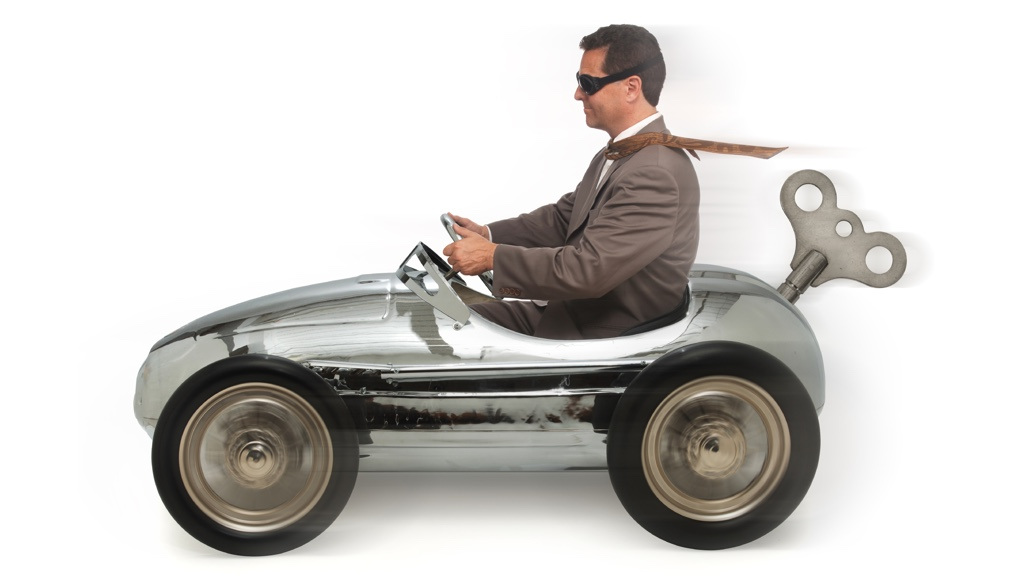Hit the breaks when the rush is over
Datum: 2017-08-29 16:06

Occasionally we have a deadline before which the workload seems to increase, and our working speed certainly does. For some, this rarely happens, but for others it happens quite often. As the due day looms closer (or the hour, for that matter), we work with increasing intensity. We answer emails and mentions regarding what we are due to deliver quickly, and we attend to tasks that have nothing to do with the important deadline before us halfheartedly (if at all). For a few moments here and there we realize how much tunnel-vision we have obtained with our laser-like focus on this important deadline.
And so the day of delivery passes. We made it! This is when some collapse utterly exhausted as they push the breaks and slow down after having accomplished what they had to. Others have gotten into a high gear and have pushed the pedal to the metal all the way to the finish line, and now having passed it, have trouble slowing down, so they continue working in the same high tempo — only now with other things and tasks, such as those neglected whilst focusing on the big deadline.
Fast and probably faulty
When the tempo is high we risk doing things too fast to notice the errors we might make simply due to our working speed. We make more arbitrary choices, and might do whatever comes our way without pausing to reflect on whether this is the right thing to do now or not. We would ”cast fewer pearls before swine” and prioritize more accurately if we just lowered our tempo now when we are not actually in a hurry anymore, and thought twice about what we are doing and why before taking action.
If the intensity of our work and tempo does not decrease by itself after meeting a big, important deadline, then we are wise to take measures to actively bring it down a notch.
Do this
If you tend to continue full steam ahead even after deadline, and if you would want to set your priorities more consciously and soberly after it is done, then do this:
- Take a look in your calendar and find the next suitable deadline on which you will practice this new strategy.
- Schedule reflection-time with yourself the day after your have met your deadline. Are you able to reserve the entire day for doing something completely different from what you usually work with (such as a walk in the forest, a day at the spa, freely reflecting ”off site” or something else)? Can you at least set aside a few hours? Thirty minutes? Fifteen minutes? Anything is better than no time at all to stop and reflect on what your next move ought to be.
- When you reflect, empty out all your thoughts regarding what you have going on at the moment. What things should have the highest priority for the next while to come, given the situation and your current circumstances? What tasks delegated from who and regarding what should you definitely not prioritize at the moment — regardless how much they complain or try to get your attention. In other words, don’t let the squeaky wheel get the grease.
Or, do this:
- Describe the tendency to a colleague or friend who you know is much better than you at slowing down and keep track of their tempo, and ask them to kindly remind you to take a breather and reflect for a moment on what to do next and at what pace once the deadline has passed. You already know when the next deadline will be, so perhaps you can even set a date right now for meeting up some time soon after the deadline. Perhaps this way of reminding yourself to calm down will come more naturally if you schedule a lunch date for the day after the deadline, since lunches are far easier to stick to and follow through with than an ambiguous ”can you remind me?”-date.
Or, find your own way of making yourself aware of that it is now alright to take it down a notch or two, since the deadline is done.
More consciously
If you take your tempo down a bit when you do not necessarily need it to be high, you will with time become more present and thus make more conscious decisions in terms of setting priorities. Instead of hitting the balls as they come flying at you, you will focus on the right balls and hit with greater power and accuracy, which will definitely be to your advantage in the long-run.
How do you slow down?
What’s your best way of getting a grip on yourself and getting some perspective on your situation after having raced towards the finish line? Tell me and other readers in a comment.




